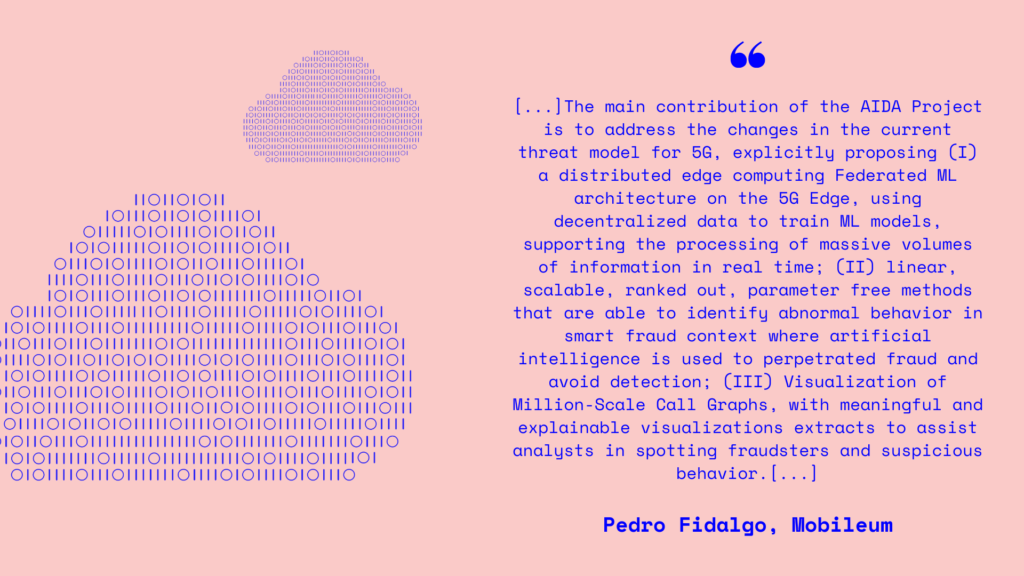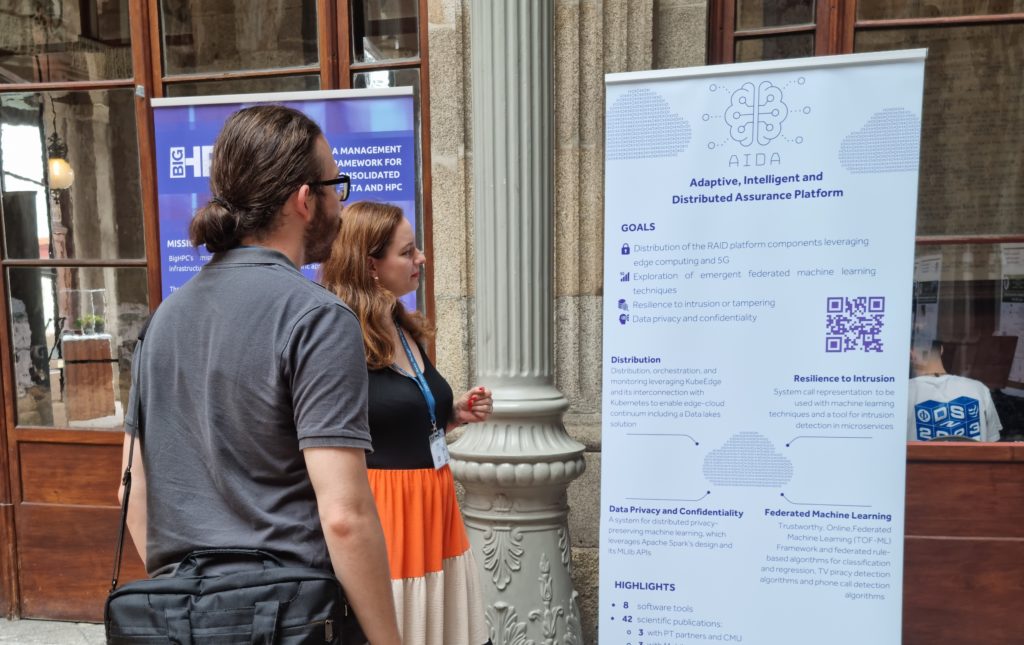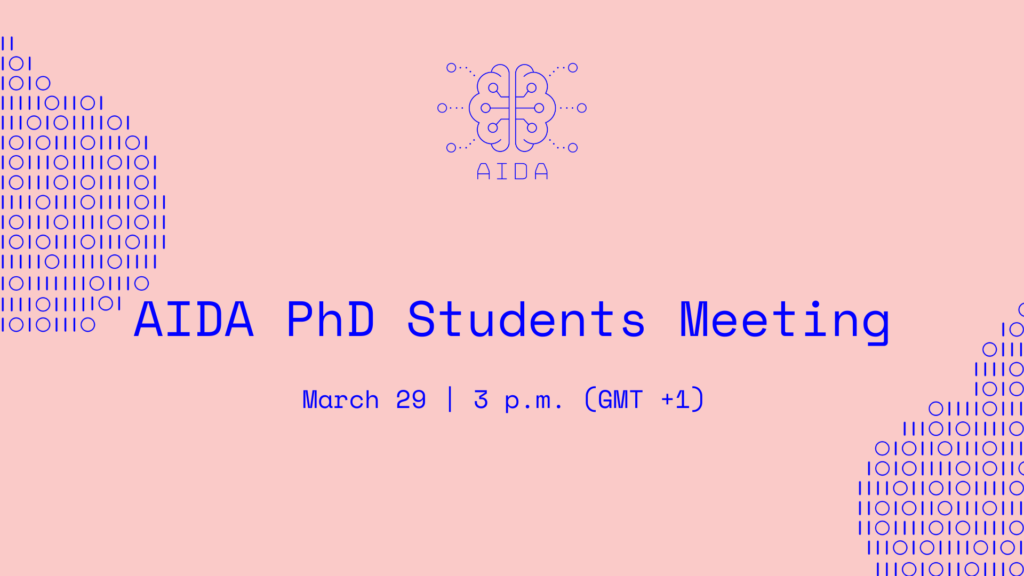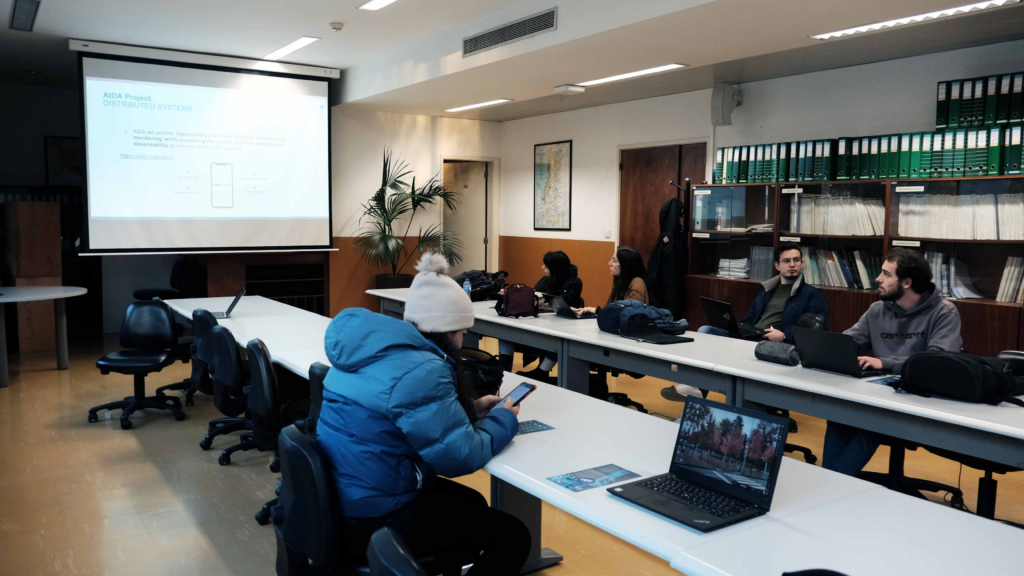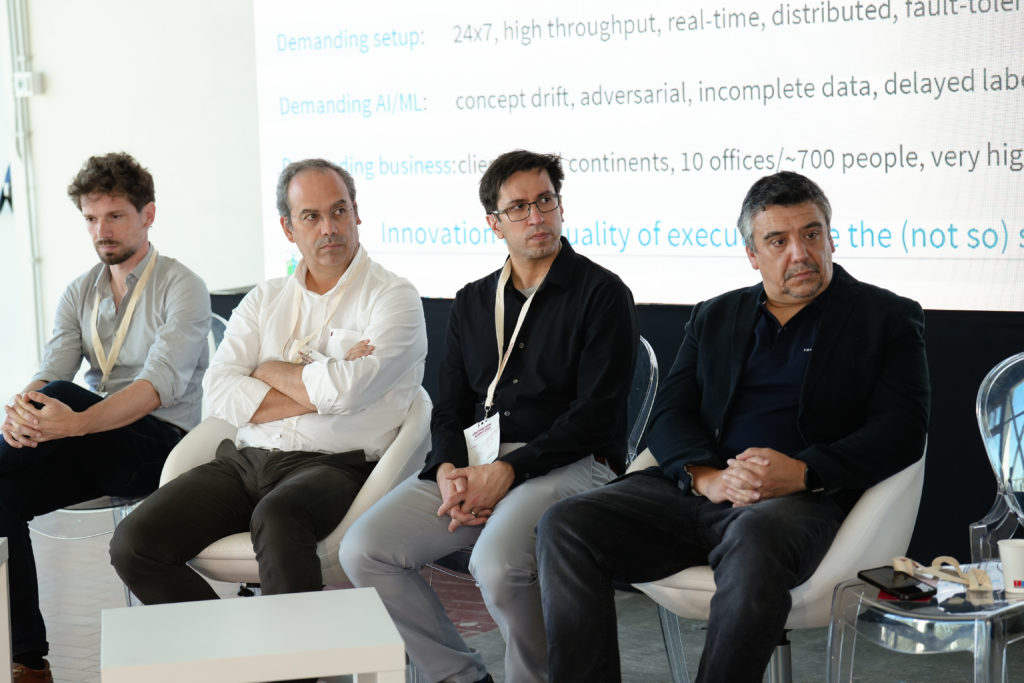Three years and many results later, the AIDA project comes to an end After three years working on harnessing the power of edge computing and federated machine learning, AIDA project has come to an end with many and significative outcomes in the fields of data processing, scalability, and privacy protection: 8 software tool 42 scientific publications: 3 with PT partners and CMU 3 with Mobileum 2 use cases: Bot net detection Anomalous Behavior Detection This is what our coordinator has to say about the work developed in the last years and the main contributions from the AIDA […]
Read More
AIDA’s results presented at the IEEE/IFIP International Conference on Dependable Systems and Networks (DSN) AIDA’s partners travelled to Porto, Portugal, where they participated in the IEEE/IFIP International Conference on Dependable Systems and Networks (DSN), from June 27-29. Their participation was an opportunity to present the project’s results since it reached its concluding phase. For the last three years, the AIDA’s partners produced 8 software tools, 42 scientific publications (3 with PT partners and CMU and 3 with Mobileum), and 2 use cases (Bot net detection and International Revenue Share Fraud).
Read More
Handling Update Hotspots in Distributed Database Systems Motivation Database systems must deal with the fact that real workloads often exhibit hotspots: Some items at certain times are accessed by concurrent transactions with high probability. This arises in telecoms, sensing, stock trading, shopping, banking, and numerous applications. Some are as simple as counting events, such as user votes or advertisement impressions in Web sites. Some of these applications, such as prepaid telco plans, selling event tickets, or keeping track of remaining inventory, in addition to counting, also need to enforce a bound invariant, that ensures that the quantity being tracked does not […]
Read More
AIDA’s researchers present poster at EuroSys 2023 Earlier this month, two researchers from INESC TEC, one partner of the AIDA project, presented a poster at this year EuroSys Conference, in Rome, with the title “Emission-Aware Federated Learning: A Case Study on Transportation and Carbon Footprint”. The poster is focused on the addition of Federated Learning”, which enables the promotion of sustainable and personalised travel behaviours while preserving data privacy. As written in the poster, the main goal of the research “is to preserve the privacy of users data while increasing awareness on their carbon footprint”. EuroSys Conference is one of […]
Read More
AIDA promoted a networking event with PhD students On March 29, eight PhD students got together to share and discuss the work they have been developing within the AIDA project. This event was an excellent networking opportunity for the students to meet each other and to get to know other investigation topics. There were presentations in three main areas related to the project outputs: Distributed Systems, Security, and Deep Learning and Anomaly Detection. The meeting was moderated by Pedro Fidalgo, from Mobileum, and had the participation of Luís Ferreira, from INESC TEC, José Flora, Iury Araújo, Mariana Cunha […]
Read More
There is always one more data bug If we, as data scientists, receive a dataset from a reliable source, we should go ahead with the analysis (classification, clustering, deep learning, etc), right? Well, yes, that’s what most of us (myself included) often do, especially if there is a tight deadline. However, this could be dangerous. Let me describe some rude awakenings I suffered over the past decades, as well as remind you some fast and easy preventive measures. Examples (a.k.a. horror stories) E1 Geographical data Two decades ago, we got access to a public dataset of cross-roads in California, […]
Read More
AIDA presented to PhD students INESC TEC, one of AIDA’s partners, presented AIDA to the Doctoral Program in Computer Science (MAP-I)’S first year students. This visit, which took place on December 6, 2022, happened during a visit to the High-Assurance Software Laboratory from INESC TEC at the University of Minho. This was an opportunity to present the work carried out by the AIDA project and get to know a good example of international collaboration between industry and academia. It is important to mention that the initiative was also an opportunity to share the project’s vision and expected outcomes, while promoting […]
Read More
AIDA Research on Suspicious Behavior and Anomaly Detection One of the goals of the AIDA Project is to investigate and identify new ways to help Analysts find Anomalous Behavior (of any kind) in large and complex pools of data. We hope this can ultimately lead to significant improvements in the detection of fraudulent activity occurring on Telecom Networks, especially in the light of new technologies like 5G already expanding on the market. Moreover, we now see over more sophisticated, complex and robust methods being used for committing fraud on Telecomm Networks but also increasingly expanding to the world of Communication […]
Read More
AIDA participated in the CMU Portugal Summit 2022 Pedro Fidalgo, from our coordinator partner Mobileum, participated in the roundtable “Adaptive, automated, and autonomic computing” at this year’s CMU Portugal Summit, which happened under the motto “New Frontiers in tech”. During the conference, the AIDA project had a meeting with the CMU Portugal External Review Committee, an advisory board charged with assessing the project’s performance and making recommendations. Paula Raissa Silva, from INESC TEC, also participated in the conference with a paper entitled “Federated Anomaly Detection over Distributed Data Streams”. The conference aimed at bringing experts to present research progress in […]
Read More

